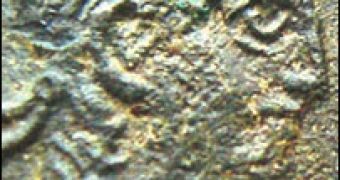For the archaeologists, it has been a surprise to discover how powerful the influence of the Romans was in Britain. Ancient coins have been discovered on a beach in the Western Isles (Outer Hebrides), in the extreme northwest of Scotland.
Archaeologists dated the pieces of copper alloy in a period around mid 4th Century, and all were discovered in a sand dune, but the location in the Uists has not been made public in order to protect the site. This is considered a "lucky find" as the coins could have vanished anytime in a high tide.
Previously, just seven other Roman coins have previously been discovered on the isles, besides a Roman brooch and pieces of pottery.
"The new find was exciting. It is very unusual to find two coins very close together on a stretch of beach on the Western Isles. A whole seven others have been found - six of those on North Uist - which indicates something quite special was happening at that time," said Kate McDonald, a PhD student in archeology at the University of Sheffield, who spent 3 and a half years on the isles. She is doing some research on the Iron Age, Scottish islands and brooches.
"The coins dated from the Iron Age in Scottish terms, but in England would be considered to be from the late Roman period. The isles were a "hub of development" throughout pre-history because travel was easier by sea than land at that time," said Ms Macdonald.
Still, it is a mystery how the coins reached the islands. Were they brought by islanders from the mainland, or by the Romans? "In Scotland it has always been thought the Western Isles were beyond the reach of the Roman Empire. The coins were very well preserved. You would expect salty water might have attacked them to some extent. They look almost as good as the day they were made."

 14 DAY TRIAL //
14 DAY TRIAL //